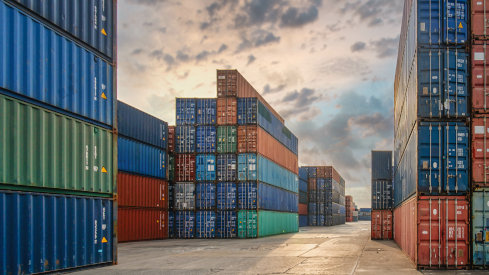What are sanctions?
In situations of international concern, measures other than the use of armed force are often required to bring a situation to an end, limit its impacts, or to penalise those responsible. This is where sanctions come into play.
Sanctions measures include financial sanctions such as asset freezes, travel bans, restrictions on trade and on engaging in commercial activities.
Australia implements two types of sanctions regimes:
- United Nations Security Council (UNSC) sanctions.
- Australian autonomous sanctions.
United Nations Security Council (UNSC) sanctions
As a member of the UN, Australia implements all UNSC sanctions by incorporating them into Australian law.
The UNSC has imposed sanctions in relation to various countries including Iraq, Lebanon and Yemen. Additionally, anti-terrorism sanctions are imposed against ISIL and Al-Qaida, The Taliban, and generally in relation to any persons involved in terrorist activities.
Australian autonomous sanctions
A number of countries do not have sanctions imposed by the UNSC, however Australia implements autonomous sanctions to address conduct that is contrary to Australian foreign policy and poses a threat to national or international security.
Australia has imposed autonomous sanctions in relation to the Former Federal Republic of Yugoslavia, Myanmar, Russia and Zimbabwe.
In some cases, Australian autonomous sanctions overlap with UNSC sanctions. For North Korea, Iran and Libya, Australia incorporates UNSC sanctions into domestic law, as well as implementing its own complementary autonomous sanctions.
What activities are prohibited by sanctions?
The activities prohibited will depend on the specific sanctions regime. For example, Australia has imposed autonomous sanctions on Russia in response to the Russian invasion of Ukraine.
The Russia sanctions regime imposes:
- Restrictions on the export or supply of certain goods.
- Restrictions on the import, purchase or transport of certain goods.
- Restrictions on certain commercial activities.
- Restrictions on the provision of certain services.
- Restrictions on providing assets to designated persons or entities.
- Restrictions on dealing with the assets of designated persons or entities.
- Travel bans on designated persons.
Who is considered a designated person or entity?
The Consolidated List contains the names of designated persons and entities who are subject to targeted financial sanctions. Those listed may be Australian citizens, foreign nationals, or residents in Australia or overseas.
Current examples include:
- Entity: Industrial Solutions (Syria) – a front company for the acquisition of sensitive equipment for the “Scientific Studies and Research Centre”, which purchases equipment for the Syrian military.
- Individual: Serhiy Yurievich Kozyakov (Ukraine) – Former Minister of Justice and former Head of the “Central Electoral Commission” of the self-proclaimed “People’s Republic of Luhansk”, where he was responsible for organising the illegal elections of 2 November 2014.
Who must comply with sanctions?
Australian sanction laws apply to activities in Australia and to activities undertaken overseas by Australian citizens and Australian‐registered bodies corporate.
If you become aware that you are holding an asset of a designated person or entity, you are required to freeze (hold) that asset and notify the Australian Federal Police (AFP) as soon as possible.
Due diligence requirements and consequences of non-compliance
Australian businesses and individuals are required to conduct due diligence, including checking the Consolidated List, to ensure that they do not deal with designated persons or entities.
It is a serious criminal offence to contravene a sanctions measure. The penalties include up to ten years in prison for individuals and substantial fines for individuals and bodies corporate.
You should check the Consolidated List before undertaking a proposed business activity with a foreign associate to ensure you do not contravene an Australian sanctions law.
Sanctions permits
In some circumstances, it may be possible to obtain a sanctions permit to allow an activity related to a person or entity on the Consolidated List that would otherwise be prohibited by an Australian sanctions law.
The Consolidated List identifies the sanctions regime for each listing. You can then check the relevant regime to identify the criteria required to apply for a sanctions permit.
How can we help?
Nyman Gibson Miralis provides expert advice and representation in complex cases involving sanctions.
Contact us if you require assistance.

